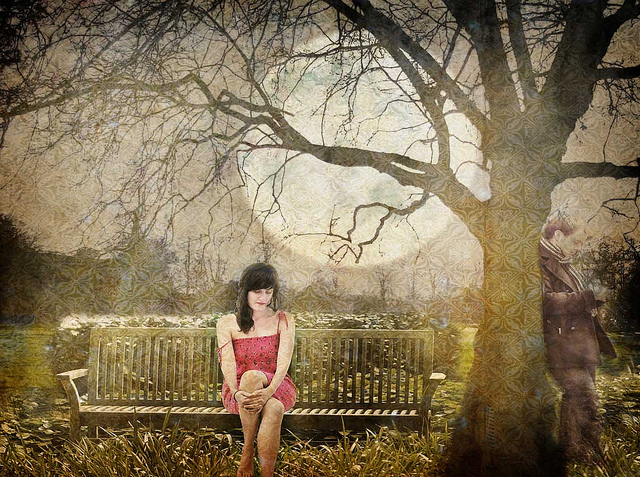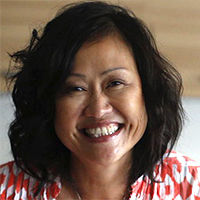
This morning, while going through an old purse making its way to the Salvation Army, I came upon crumpled pieces of paper stuffed in a side pocket—notes I had written from my mom’s suicide.
It was April 2007. I had just turned 39 and found out I was pregnant. The morning of April 20th, my mother called to wish me a happy birthday. I remember bursting at the seams to share my good news, but decided to wait until the pregnancy was farther along.
That was the last time we spoke.
Three days later, she took her own life. Devastated and grieving, I wanted answers. What made her feel so sad, so hopeless? Since she did not leave a note, I tried making contact with her on the other side through a medium. My mother had never fit the “stereotypical” mold and I wanted to know “What happened?”
Over the years, April has been bittersweet, a month book ended by life and death and overshadowed with sadness. Celebrating my birthday around the anniversary of her death felt awkward. I used to visit my father on “that day” so he wouldn’t be alone. At the risk of being perceived as disrespectful, I stopped going several years ago when I no longer wanted to celebrate her death. I didn’t want another year of re-hashing the what ifs.
I knew I had to find my own way of honoring her.
Finding the note in my purse really hit home. When I gave my mother’s eulogy nine years ago, I had to lie about how she died to save face and honor my family lineage. I couldn’t make anyone feel uncomfortable by talking about a subject seen as shameful, taboo—especially in my Asian culture. Today, I write this to honor my mother.
And here, the note I wrote from my mother’s perspective:
“There was nothing anyone could have done differently. No one did anything wrong. No one failed. I knew I was loved. It was my time.
The 25th of April was not a chosen date. My body and soul felt like a big hammer pounding on an anvil, all the time. Excruciating. The medications did not work. I had lots of pain, both physical and emotional.
I was in a deep state of depression and had been for a long time. I was just tired. If I could have been more “creative” with my exit, I would have. I simply did not have the strength. I found my time here very challenging. I heard things in other dimensions, but did not have the voice to articulate. There was no place to go with it.
Don’t honor me by living my sadness. Try not to go into the abyss of the silent place. I am sorry this is challenging. Remember to love one another. It is okay to go on and celebrate and live a happy life. Try not to be angry with me.
Most importantly, do not remember me for this. I did not take my life. I simply could no longer take this life. I gave it back.”
I will never truly know why she chose to leave when she did. And I can accept this .
Even on the days when I miss her and want to share with her some amazing “mommy and me” moments I am having with my daughter, I remind myself there are other ways I can. In a dream, in my meditations or by being present to living the best life I can today.
For the first time in years, I made plans for a dinner party to celebrate my birthday. This morning, my daughter asked me to tell her a story about her Por Por (Cantonese for grandma). We sat on the couch and looked through my childhood album and I told her a story of my eight-year-old self with my mother, the same age she is now.
I put a photo of her on our altar and lit a candle in her memory. She hasn’t asked how my mother died, but I am beginning to prepare. So one day when she finally does, I can share with her from a place of loving and celebrating her grandma’s life.
It is my hope that sharing my story can help remove some of the stigma around suicide and encourage others to reach out.
Honoring Pak Yee Ho Chew (1931-2007).
Author: Claire Chew
Editor: Nicole Cameron
Image: jinterwas/Flickr








Read 24 comments and reply